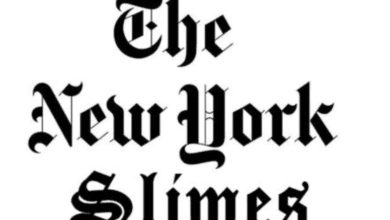These 84 Places in America Are Raising Their Minimum Wages to Ring in the New Year
Two years into the COVID-19 pandemic, small businesses across the country are still struggling under the weight of government restrictions and mandates. Now, they’re in for another ugly welcome this New Year—at least, in the 84 places that are raising their mandatory minimum wages in 2022.
When states or local governments pass minimum wage increases, they typically structure the laws so the increases phase in over several years, often starting on Jan 1. With 2022 officially underway, minimum wage increases will take effect in 25 states, 58 cities/counties, and Puerto Rico, according to a new report from the Employment Policies Institute (EPI), a fiscally-conservative think tank that generally opposes minimum wage hikes.
California leads the way among state-wide minimum wages, with a $15/hour minimum wage now in effect for large employers. Washington similarly increased its wage to $14.49, followed by Massachusetts at $14.25, Connecticut at $14, Oregon at $13.50, New York at $13.20, New Jersey at $13, Arizona at $12.80, Maine at $12.75, and Colorado at $12.56.

Some places are raising the minimum wage even more sharply at the local level. West Hollywood, California is leading the way in 2022, with a $17.64 minimum wage specifically for hotel employees. Emeryville, California is also enacting an estimated $17.64 minimum wage this year, while in Washington, SeaTac is implementing $17.54 and Seattle is requiring $17.27 among large employers.
Next up are more California localities, with Berkeley and San Francisco implementing a $17.16 minimum wage, while Mountain View and Sunnyvale go for $17.10 and Palo Alto and Milpitas enact minimum wages of $16.45 and $16.43, respectively.

(For the full list of all 84 jurisdictions raising their wages, click here.)
At first glance, this might all sound like good news. After all, doesn’t everybody want higher wages? Yet the truth is these mandatory wage increases will hurt businesses and employees alike. As EPI’s report notes, these increases would harm the economy in the best of times. And we are not, in fact, living in the best of times.
“We know the damage that sharply rising minimum wage mandates have caused prior to the pandemic,” EPI Managing Director Michael Saltsman said. “Now, despite the track record of past harm, minimum wage advocates are instead moving the goal posts without assessing the extent of losses created by minimum wage hikes despite the hardship of the last two years.”
While some workers will see their wages go up as a result of these increases, many others will lose their jobs entirely or have their hours reduced and see a net reduction in earnings. Why? Well, because the real minimum wage is always zero: unemployment.
“Making it illegal to pay less than a given amount does not make a worker’s productivity worth that amount—and, if it is not, that worker is unlikely to be employed,” famed free-market economist Thomas Sowell explained. “Unfortunately, the real minimum wage is always zero, regardless of the laws, and that is the wage that many workers receive in the wake of the creation or escalation of a government-mandated minimum wage, because they either lose their jobs or fail to find jobs when they enter the labor force.”
Minimum wage increases can eliminate millions of jobs and lead to lower overall compensation, but that’s not it. Studies have also shown that mandatory wage hikes can lead to higher prices for food and childcare, more than negating any benefit.
Of course, many of the minimum wage increases taking effect across the country are gradual. But their consequences are still very real—and they’ll still be felt by families already struggling with crippling inflation and a faltering recovery.
Content syndicated from Fee.org (FEE) under Creative Commons license.




